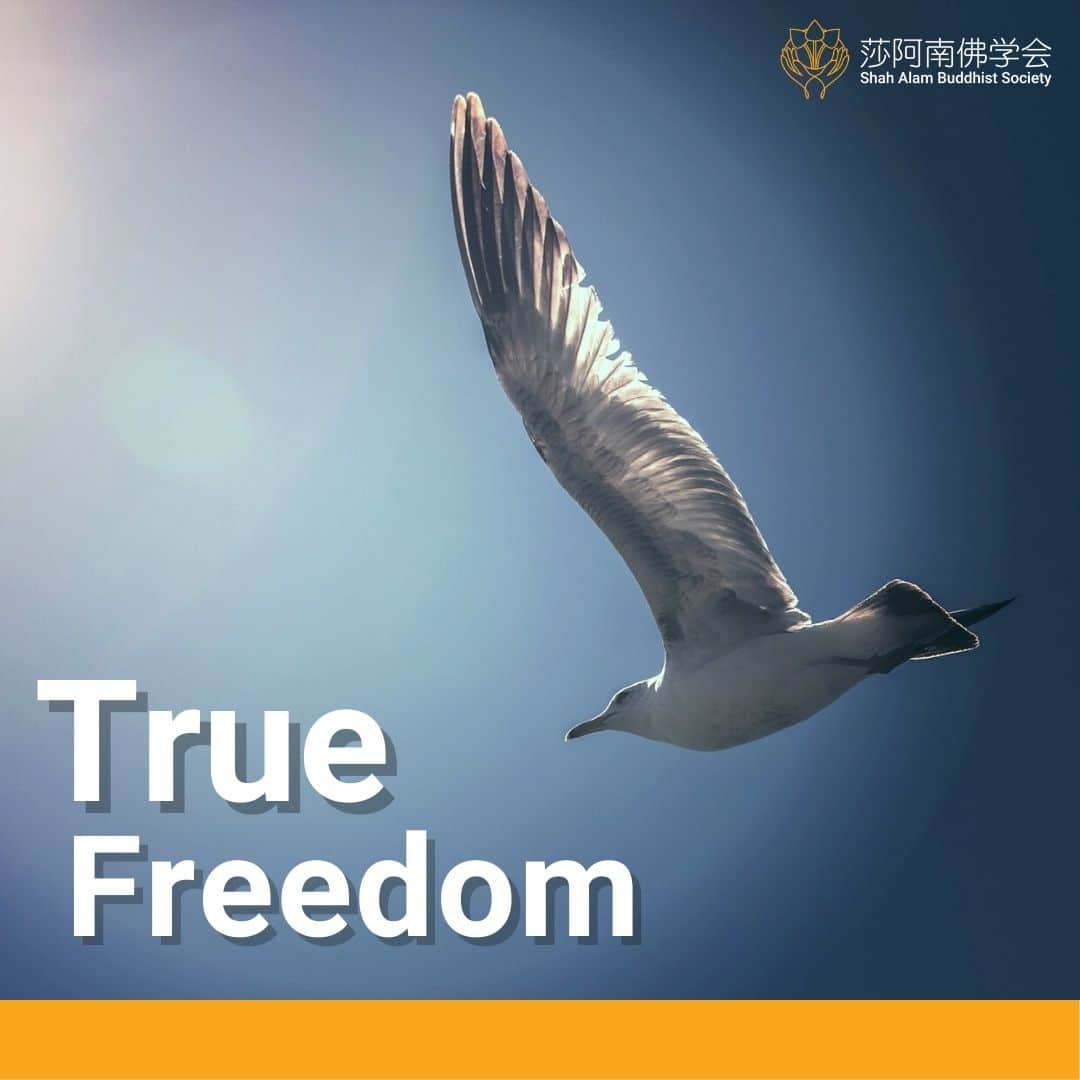True Freedom

Image Source: https://unsplash.com/photos/857SA5ho9hc
In the last article, we are aware that freedom means differently to different people. The word ‘freedom’ requires deep exploration. There are boundaries to freedom – one’s actions should not hurt others in the pursuit of freedom. For example, when we insult someone in the name of freedom of speech, we may feel a sense of no restriction, but in fact we don’t have any real freedom. To insult someone is to be dominated by egoistic emotions! Where’s the freedom in that? When we fight, compete or go into conflict, do we do so for the sake of freedom or to lose our freedom to our own ego?
From a Buddhist perspective, freedom begins with letting go of the egoistic ‘I’, ‘me’ and ‘mine’. This is what creates true freedom and happiness. True freedom is when one has the ability to remain free mentally and emotionally, even there’s chaos outside. True freedom is when one can stay calm amidst the storm and can adjust their sail according to the wind. True freedom is having the ability to manage one’s inner self.
When the arrogant ‘I’, the low self-esteem ‘I’, the obsessive ‘I’ and the self-centred ‘I’ have disappeared, there is nobody and nothing to grasp or to cling on. The Buddha taught that grasping gives rise to greed, hatred and delusion, which are the three roots to all sufferings. Thus, when the obsession with self in all its form disappears, life is released!
The means of doing this is the Noble Eightfold Path – Right View, Right Thought, Right Speech, Right Action, Right Livelihood, Right Effort, Right Mindfulness and Right Concentration. Following the Noble Eightfold Path, we live morally, we establish integrity, we quiet the mind, and we learn to see with wisdom. With wisdom, we move through life with a peaceful heart that is happy and free of greed, hatred and delusion. That is true freedom!


